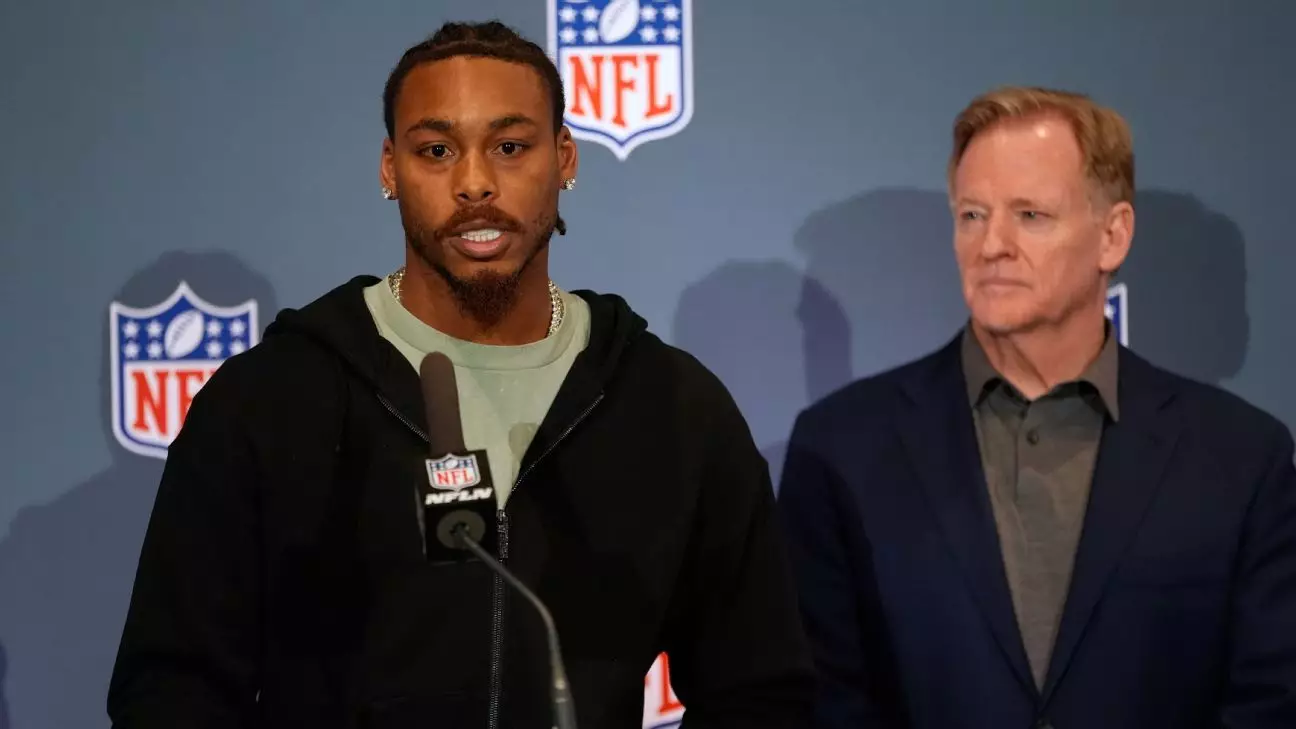In a historic move, the NFL has shattered long-standing barriers by permitting its players to compete in flag football at the 2028 Los Angeles Olympics. This ground-breaking initiative is not merely about the sport but a monumental step toward recognizing the global potential of American football. Star wide receiver Justin Jefferson, emblematic of this exciting evolution, expressed pure joy at the announcement, embodying the dreams of countless young athletes worldwide. Jefferson’s exuberance during the unveiling evident in his unique “Olympic Griddy” celebration demonstrates the infectious spirit that accompanies the idea of competing on a global stage.
This decision isn’t merely groundbreaking due to its novelty. It symbolizes a transformative moment for a league historically viewed as a quintessentially American pastime, branching out into international territories. Flag football, with its minimalist equipment and more accessible format, presents an ideal vehicle for engaging new audiences and nurturing a diverse pool of talent. Jefferson articulated a poignant sentiment: for football to become a truly global sport, it must make the leap beyond domestic confines. As he looked back at his childhood aspirations, it was clear that the allure of international competition resonated deeply with him, mirroring the experiences of many young dreamers.
The NFL’s Vision and Future Growth
The NFL’s unequivocal commitment to global expansion, echoed by league officials like Troy Vincent, underscores a broader vision. The unanimous approval from the league’s 32 owners speaks volumes about this collective ambition and the strategic implications tied to it. Vincent’s enthusiasm reflects a belief that the world deserves to witness elite athletes cross borders to define the essence of sportsmanship and competition. This isn’t about trivial games; it’s about showcasing the best talent, both men and women, at an elite level—a sentiment that resonates powerfully with the essence of the Olympics.
Athletes like Jefferson have first-hand experience with the exhilarating nature of flag football, particularly through events like the reimagined Pro Bowl Games. Jefferson’s account of the joy and camaraderie exhibited during these matches illustrates a compelling case for why flag football can capture the imaginations of fans worldwide. In contrast to the rigid structure of traditional football, the informal vibe of flag football taps into the free-spirited nature of play, appealing to both players and spectators alike.
Navigating New Challenges
However, the enthusiastic embrace of this newfound opportunity isn’t without its challenges. While the resolution has passed, the complexities of logistics, particularly in aligning NFL commitments with Olympic schedules, invite scrutiny. The league must engage in negotiations with the NFL Players Association and other governing bodies, addressing necessary protections for players as they engage in dual pursuits. As executive Peter O’Reilly noted, synchronization will be critical in ensuring that players can participate without compromising their NFL careers.
The balancing act required to juggle training for both the Olympic games and the demands of an NFL season poses a unique dilemma. Like gymnasts or track athletes, football players will need to superbly navigate the physical and mental toll of competing at such high levels in two distinct formats. Ongoing conversations regarding how these athletes can transition seamlessly between their NFL commitments and Olympic aspirations are essential for paving the way forward.
Respecting the Landscape of Flag Football
Moreover, it’s essential to recognize and respect the established talent pool within the world of flag football. Players like Vikings linebacker Brian Asamoah II have articulated an important truth — the game may require different skills than traditional football, calling for expertise in agility and strategy that traditional football enthusiasts might overlook. Incorporating seasoned flag football players into the Olympic squad will not only enhance the level of play but also foster respect for the discipline as a legitimate sport unto itself.
Recognizing this unique skill set provides key insights into how the NFL can nurture the sport further. The blend of traditional football prowess with the specialized skills of flag athletes may create a dynamic and unpredictable competition at the Olympics, harking back to the spirit of innovation that originally attracted fans to football. The synergy of diverse talent only promises to elevate the excitement levels and push the boundaries of what the sport can achieve on the world stage.
The NFL’s pioneering decision to introduce flag football into the Olympic framework, championed by passionate athletes like Jefferson and Asamoah, fundamentally alters the landscape of American football. With careful consideration, collaboration, and creativity, the league has the chance to not just expand its reach but also to foster a greater appreciation for the variety of athleticism that flag football embodies.


Leave a Reply